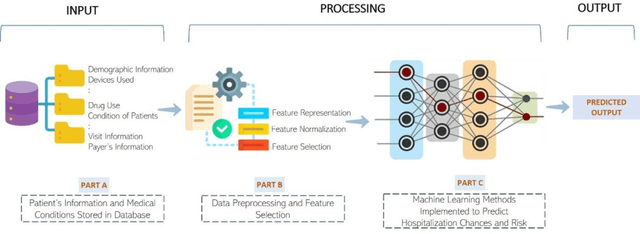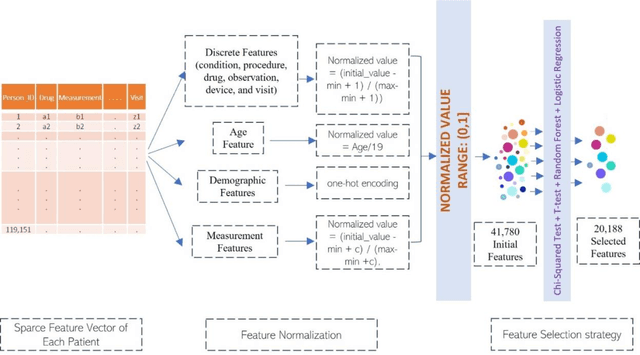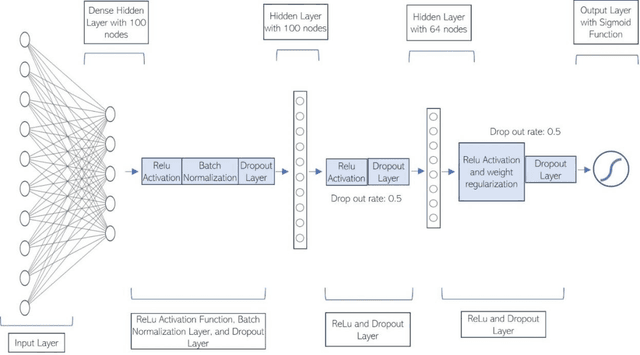Deep Learning Prediction of Severe Health Risks for Pediatric COVID-19 Patients with a Large Feature Set in 2021 BARDA Data Challenge
Paper and Code
Jun 06, 2022



Most children infected with COVID-19 have no or mild symptoms and can recover automatically by themselves, but some pediatric COVID-19 patients need to be hospitalized or even to receive intensive medical care (e.g., invasive mechanical ventilation or cardiovascular support) to recover from the illnesses. Therefore, it is critical to predict the severe health risk that COVID-19 infection poses to children to provide precise and timely medical care for vulnerable pediatric COVID-19 patients. However, predicting the severe health risk for COVID-19 patients including children remains a significant challenge because many underlying medical factors affecting the risk are still largely unknown. In this work, instead of searching for a small number of most useful features to make prediction, we design a novel large-scale bag-of-words like method to represent various medical conditions and measurements of COVID-19 patients. After some simple feature filtering based on logistical regression, the large set of features is used with a deep learning method to predict both the hospitalization risk for COVID-19 infected children and the severe complication risk for the hospitalized pediatric COVID-19 patients. The method was trained and tested the datasets of the Biomedical Advanced Research and Development Authority (BARDA) Pediatric COVID-19 Data Challenge held from Sept. 15 to Dec. 17, 2021. The results show that the approach can rather accurately predict the risk of hospitalization and severe complication for pediatric COVID-19 patients and deep learning is more accurate than other machine learning methods.
 Add to Chrome
Add to Chrome Add to Firefox
Add to Firefox Add to Edge
Add to Edge